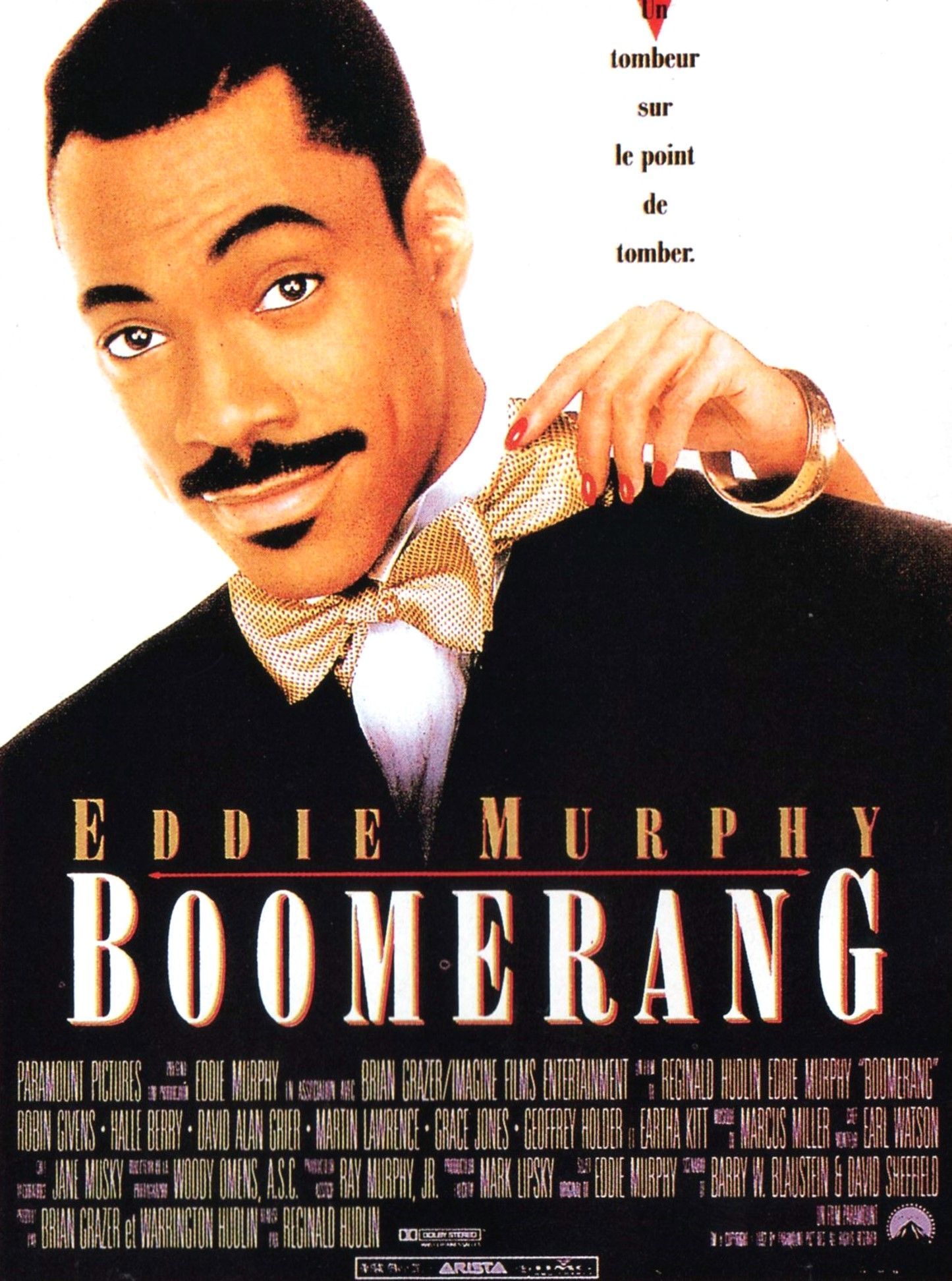

Yes, Marcus is always on the prowl but his perfectionism is rather impressive: he could have the girl in his bed but he plays it so smooth again he ends up in hers. One ellipse takes us to him decorating his house with the cautiousness of a caterer and ignoring the insult of his neighbor (Tisha Campbell) who keeps warning new girlfriends about the predator. The trick could work by earning him a number but it works so well she gives hers.

His character-establishing moment occurs when he improvises a lost-dog scenario by buying a leash on the spot, Lela Ronchon falls in his trap.
#Boomerang 1992 movie#
A lesser movie would've made him arrogant and detestable but Marcus plays in a whole other league, taking women as seriously as any part of his professional endeavor. And in this seemingly implausible world, Eddie Murphy plays Marcus, the smooth-talking womanizer who can get any girl. And from that starting point, it creates a whole new outlet for romantic comedies whose tropes were codified by Meg Ryan or Julia Roberts movies. This is not the first of its genre: Spike Lee built his reputation by portraying African-Americans in narrative realms outside the usual dictated tropes, but director Reginald Hudlin and writer Barry Blaustein went even further by exploring the world of glam, cosmetics agency, marketing, female power and reversed the roles with white people playing comic reliefs and women dominating men it's "The Cosby Show" meeting "Working Girl". First, let's credit "Boomerang" for what it is: an all-Black cast movie not centered on urban crime, drugs, racism, hood etc.


 0 kommentar(er)
0 kommentar(er)
